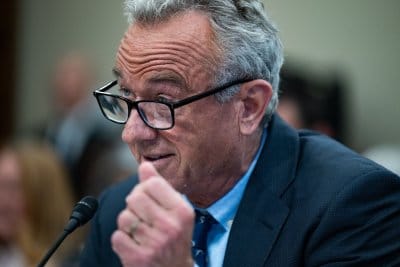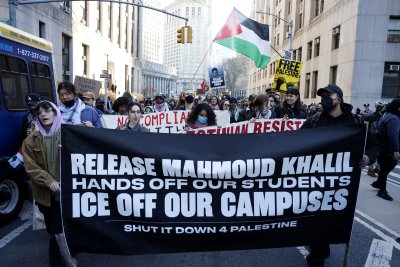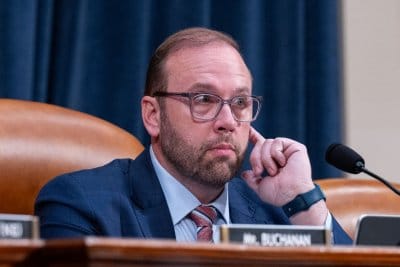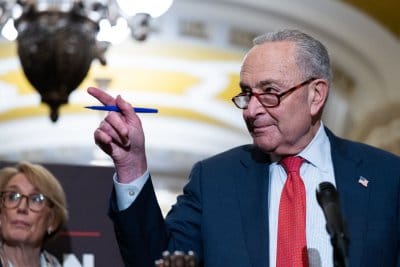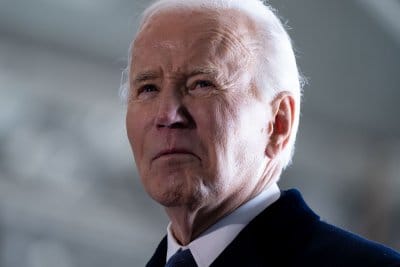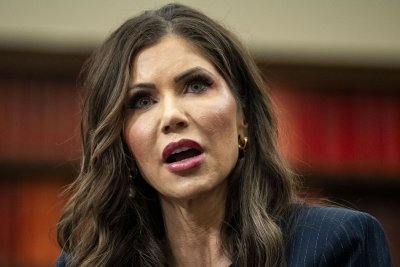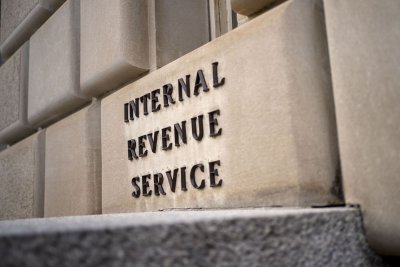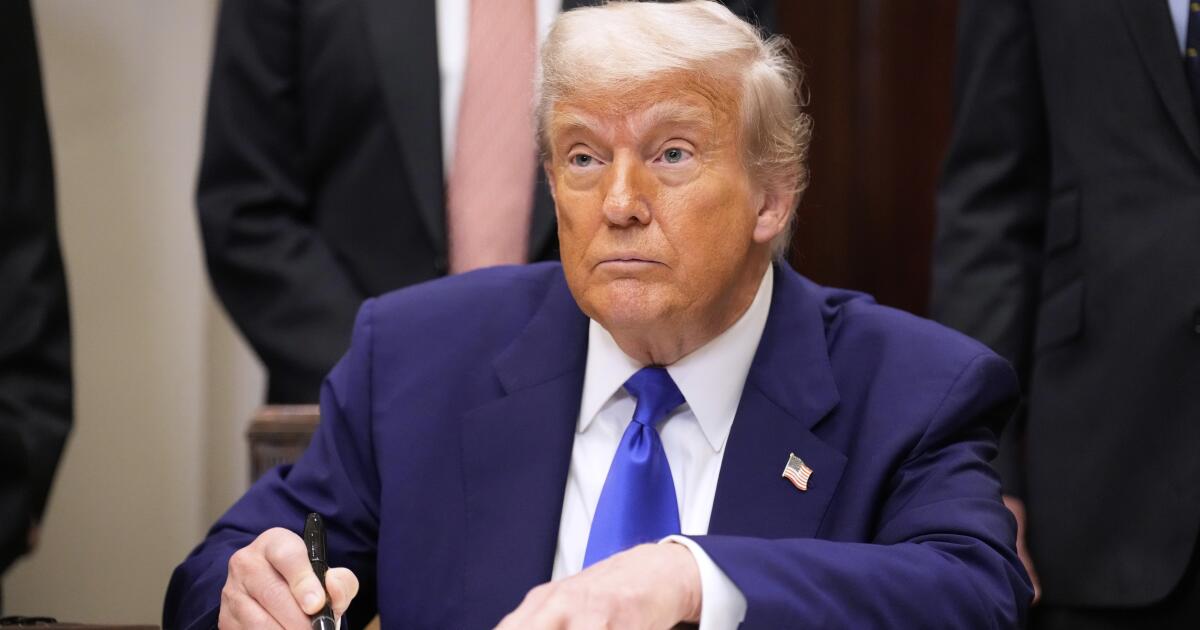For third straight day, Trump administration imposes Iran-related sanctions amid nuclear talks
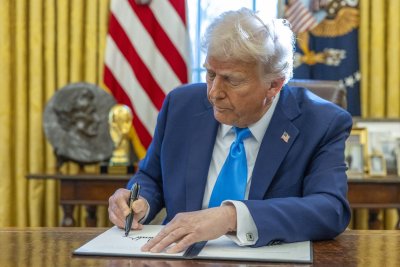
May 14 (UPI) — For a third straight day, the United States on Wednesday issued sanctions targeting Iran as the Trump administration attempts to negotiate a new nuclear arms deal with the Middle Eastern country.
The punitive measures imposed by the Treasury Department are secondary sanctions, meaning those aimed and punishing third parties for dealing with previously designated entities, individuals and countries.
The sanctions target six individuals and 12 entities in China and Iran accused of aiding Tehran source the manufacturing of critical materials used in the Islamic state’s ballistic missile program, specifically carbon fiber materials used in the construction of intercontinental rockets.
The State Department spokesperson Tammy Bruce explained in a statement that Iran is “heavily reliant on China to conduct its malign activities in the Middle East.”
The targets work with the U.S.-sanctioned elite Islamic Revolutionary Guard Corps.
“The United States cannot allow Iran to develop intercontinental ballistic missiles,” Treasury Secretary Scott Bessent said in a statement.
“The Iranian regime’s relentless and irresponsible pursuit of advanced ballistic missile capabilities, including its efforts to indigenize its production capacity, represents an unacceptable threat to the United States and the stability of the region.”
The sanctions are the third batch of Iran-targeted punitive measures that the Trump administration has imposed this week as it engages in negotiations with Iran on a new agreement aimed at preventing Tehran from securing a nuclear weapon — a goal long held by President Donald Trump.
In 2018, during his first term in the White House, Trump slapped sanctions on Iran and unilaterally pulled the United States from a landmark Obama-era multinational accord, calling it “defective at its core.”
He pursued a so-called maximum pressure campaign of sanctions and other punitive measures, but failed to coerce Iran back to the negotiating table, and it instead advanced its nuclear weapons capability to the point the U.S. government estimated in 2022 that it would need just a week to produce enough weapons-grade highly-enriched uranium for a nuclear weapon.
In February, Trump reinstated his maximum pressure policy, which includes the recent batches of further sanctions.
The United States and Iran have had four recent negotiations on a new deal, but there does not appear to be a fifth round scheduled yet.
Trump administration officials have said a deal would see Iran dismantle its three enrichment facilities, but Iranian officials have said it will not stop enriching uranium but would be open to restrictions.
Trump is in the Middle East this week for a four-day trip, and has repeatedly voiced optimism that a deal can be made.
“I have a feeling it’s going to work out. I think it’s going to work. It’s got to work out, one way or the other we know it’s going to work out,” Trump said during a press conference Wednesday in Doha, Qatar.
Later to reporters aboard Air Force One, he was more direct with his threats against Iran.
“One way or the other. It’s very simple. It’s going to happen one way or the other. They can’t have a nuclear weapon. So, we will either do it friendly, or we will do it very unfriendly, and that won’t be pleasant,” he said.
The Trump administration has said it has sanctioned more than 250 people, entities and vessels related to Iran and its proxies since February.

